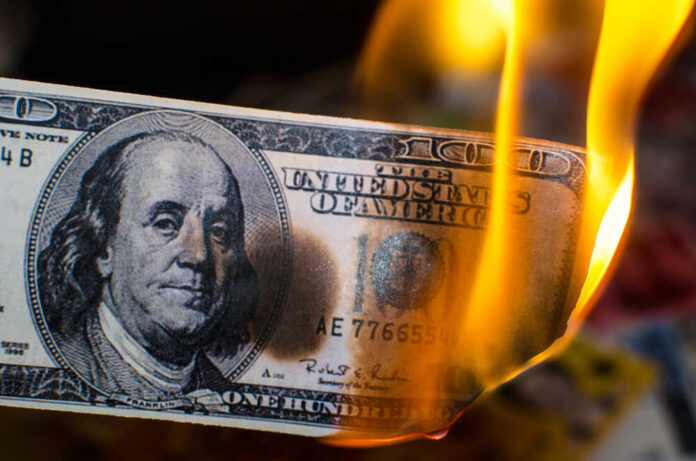
The United States saw its Fitch credit rating drop from its sterling AAA rating this week, noting a potential lack of confidence from financial markets in President Joe Biden’s stewardship of the federal budget. The decision was met with a number of dueling political accusations.
The credit ratings institution downgraded American debt from the highest possible rating of AAA to AA+. The agency cited the recent standoff over raising the federal debt ceiling.
Fitch described the “steady deterioration in standards of governance over the last 20 years, including on fiscal and debt matters.”
The White House disagreed with the decision by Fitch Ratings to downgrade American credit. Furthermore, White House press secretary Katrine Jean-Pierre said that the “ratings model used by Fitch declined” during the tenure of former President Donald Trump and argued that Biden “has delivered the strongest recovery of any major economy in the world.”
Jean-Pierre specifically blamed Republican members of Congress, citing “extremism” from GOP officials as part of the reason for the downgrade. The press secretary said that Republicans were “cheerleading default” and “seeking to extend deficit-busting tax giveaways for the wealthy and corporations.”
While the Biden administration blamed Republican lawmakers, the blame was also returned.
.@FitchRatings’ downgrade of the nation's credit rating from AAA to AA+ is a result of frivolous spending and ballooning national debt for programs like the CARES and "Inflation Reduction" Acts. Florida's AAA rating remains the standard-bearer, serving as the nation's blueprint… https://t.co/ASwenYAz11
— Ron DeSantis (@GovRonDeSantis) August 2, 2023
Rep. Jason Smith (R-MO) said that Fitch “may as well have noted Biden’s refusal to negotiate with Republicans for months while insisting on even more wasteful spending.”
Smith criticized what he called Biden’s “brinksmanship” and that the president added “$10 trillion in new spending he and Washington Democrats passed over the past two years.”
House Budget Committee Chairman Rep. Jodey Arrington (R-TX) said that Fitch’s decision was a “wake-up call to get our fiscal house in order before it’s too late.”
“You can’t burn through an unprecedented $11 trillion igniting an inflationary firestorm without setting off the fiscal fire alarm,” the Texas Republican said.
Arrington also cited estimates that the federal budget deficits are expected to double over the next decade. He also said that projections are that interest costs on the federal debate may triple during the same period.














